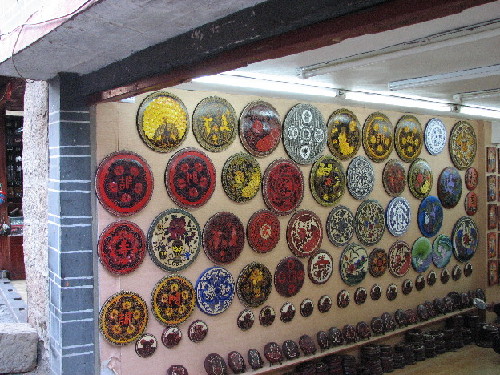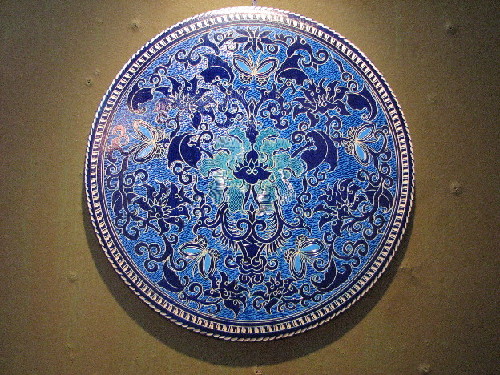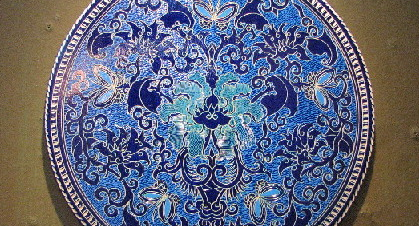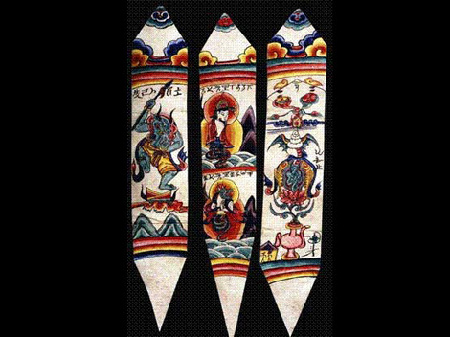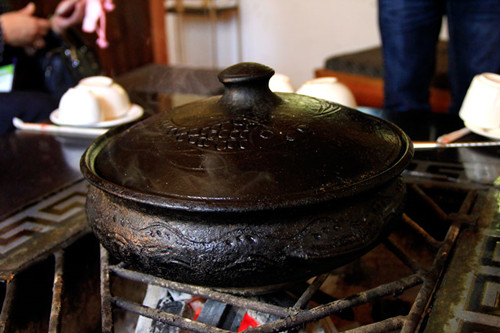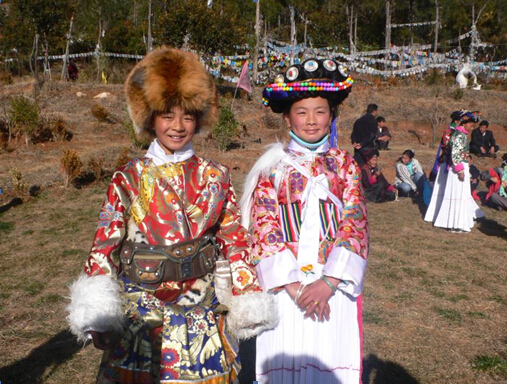Wood Plate Drawings
(ljgc.gov.cn)
With a view to solving knotty problems, Naxi ancestors created 30-odd rituals for different occasions. An ancient drawing was widely multiplied at various rituals. On such occasions, some pieces of wood plates are erected around the ritual site and Dongba priests kneel down and face the plates at irregular intervals, reciting scripture, offering wine and tea, offering hot blood and fresh meat, inviting ghost to come, blowing horn and playing with knifes and animal guns. By so doing, drawings on the plates are made and, at last, those plates are axed to small pieces and thrown away. Such drawing art is created only by Naxi ethnic group.
The oldest Naxi words were written on those wood plates. Nowadays, people may see some ancient drawings and pictographs in worn-out relics which were made by self-made papers. Those paper, however, were produced at a later stage in history. It is believed that poplar bark, ox and sheep skin used to serve as paper, a carrier on which beautiful pictures were drawn and words were written. Such a carrier was relentlessly eliminated in the process of history.
Those wood plates are of high artistic value. They, particularly in primitive art category, could be matched with African wood sculptures from ancient times. Being unstrained, natural, simple and elegant are their most striking traits. Many of drawings on the plates were made in haste. After the ceremony, ghost plates were destroyed and deity plates were erected in abeyance at the ritual site. When needed, new plates will be used. Drawing drawers make impromptu works. When they are served by ritual man with wine and meat, they would make a number of wonderful works.
Editor: Feng Hui

